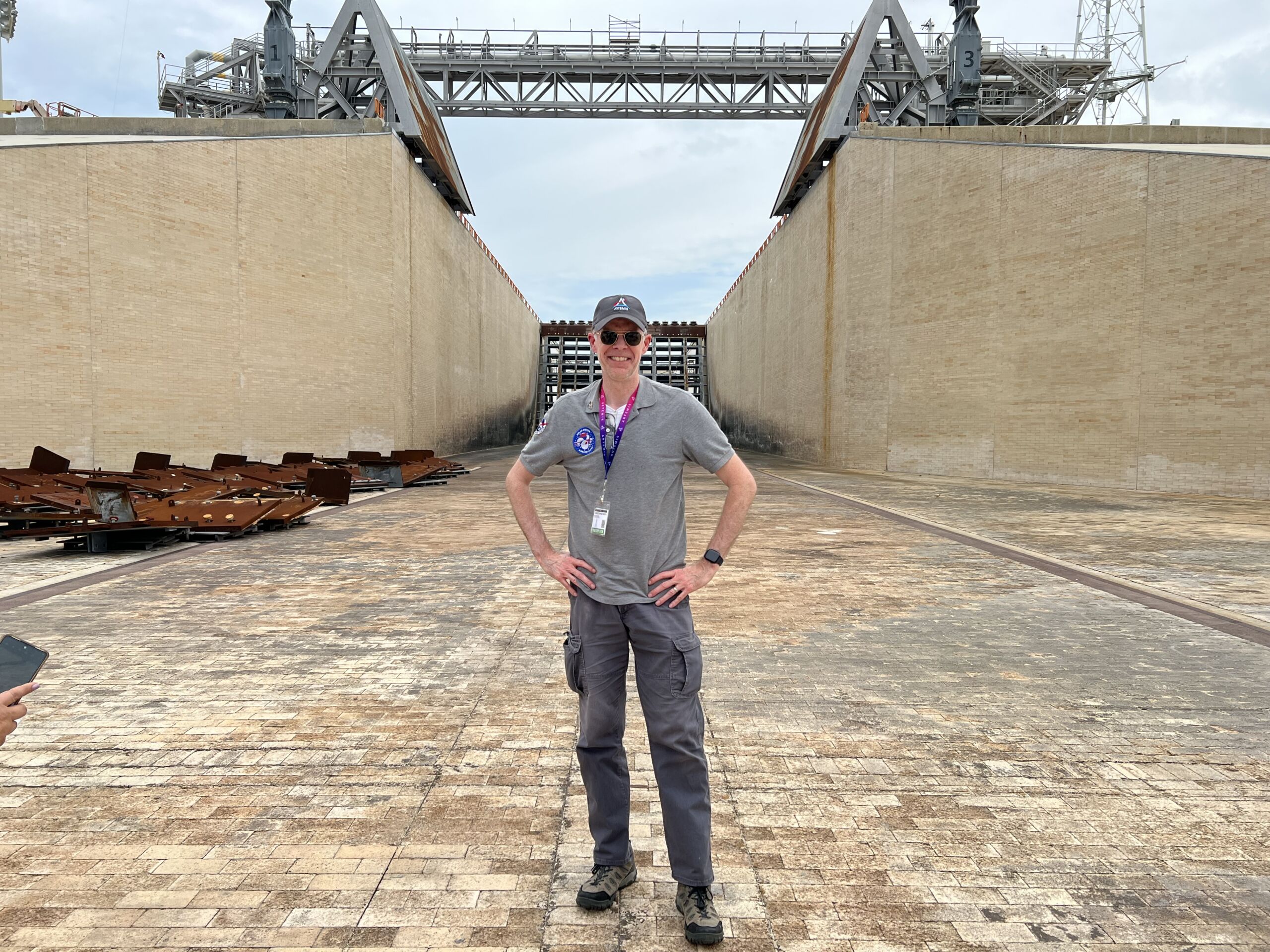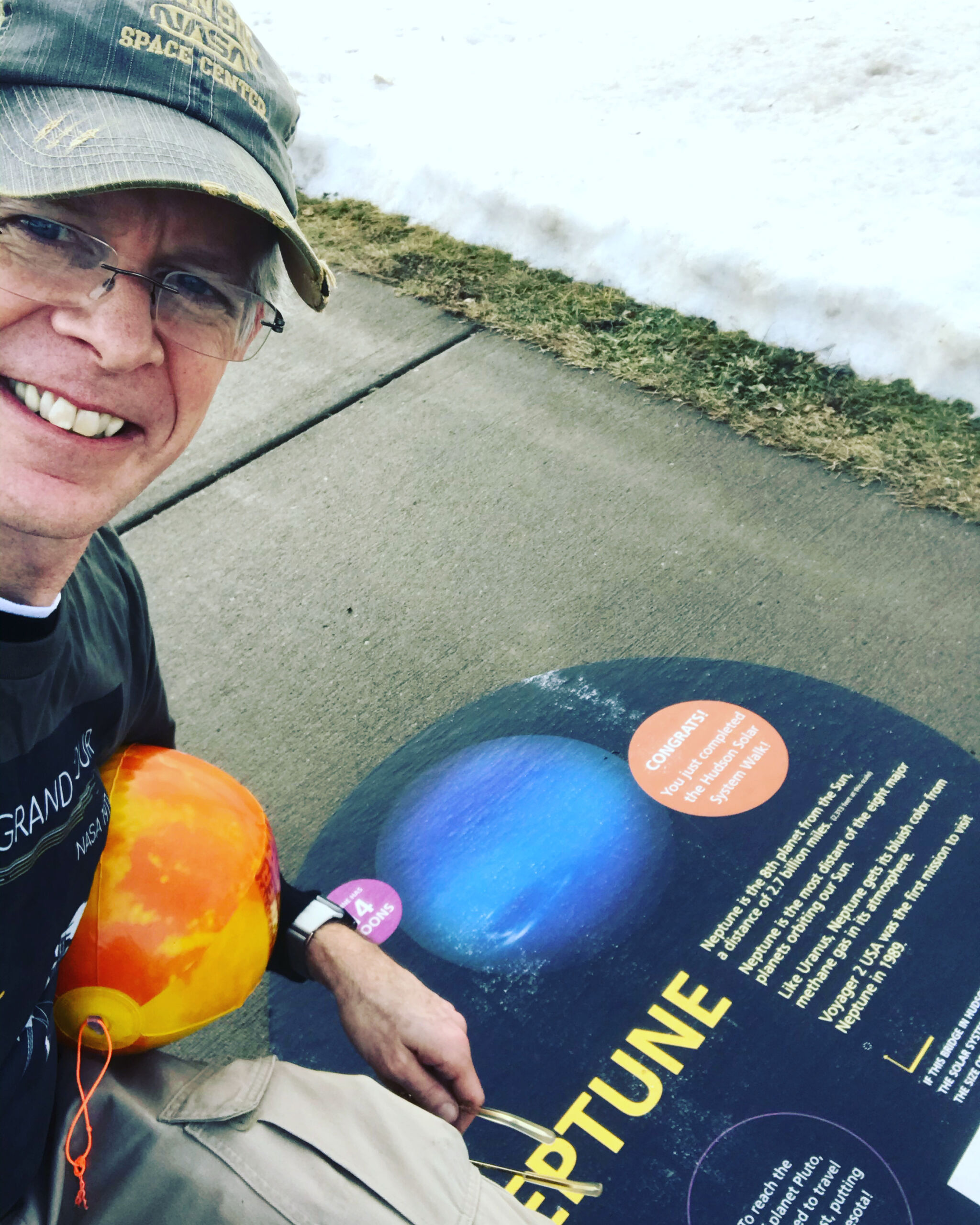Left to Right, Neil Armstrong, Michael Collins, and Buzz Aldrin in the Mobil Quarantine Facility are pictured with president Nixon onboard the USS Hornet. Image Credit: NASA
Almost everyone knows the date that astronauts first walked on the Moon, July 20, 1969. Another lesser known date is when the Apollo 11 astronauts were finishing up the last day of their three-week quarantine exactly 51 years this week in August 1969. The first lunar landing mission of the Apollo program had been an amazing success. The astronauts (Neil Armstrong, Buzz Aldrin and Michael Collins) had all returned safely with a soft splashdown landing, but due to an abundance of caution were immediately placed into quarantine to rule out any microorganisms that they could have been exposed to on the surface of the Moon. No pathogens were ever found after several missions, and the quarantine practice for returning astronauts was discontinued after Apollo 14 mission.
This anniversary brought to mind the quarantine and virus issues the world is dealing with today, and the challenges that face us that can sometimes seem as hard as it was to get to the Moon 50 years ago. With our attention on combating the Corona Virus in the middle of NASA’s work to return astronauts to the surface of the Moon with the Artemis Program, I thought it a good time to share a previously unpublished interview I conducted with Apollo 16 astronaut, and youngest person to ever walk on the Moon, Charlie Duke.
The following interview was conducted on 8/15/18 in Nisswa, Minnesota
Charlie Duke is ready to go back to the Moon, and at 82 years old, he makes me believe he could break the late John Glenn’s record of being the oldest person to fly into space at age 77. General Duke (U.S. Air Force Retired) extends a warm handshake and a quick smile as we discuss the approach of a momentous anniversary that he played a big part in. July 20, 2019 will mark the 50th Anniversary of the historic Apollo 11 landing on the Moon. Mr. Duke had a unique position in mission control on that date. He was the CAPCOM or Capsule Communicator, the astronaut charged with being the only person to talk directly to the crew from his perch at mission control in Houston, Texas during a mission. Three sets of controllers, working eight hour shifts made sure there was round-the-clock support and communication with the crew during their nearly quarter-million mile journey to the Moon. On July 20, 1969, the former Eagle Scout from Charlotte, North Carolina was working as the CAPCOM when Neil A. Armstrong and Edwin E. “Buzz” Aldrin made their powered decent and eventual landing at the Sea of Tranquility, becoming the first human beings to land on another world.
Hundreds of millions of people around the world heard Charlie Duke’s words as the Eagle (call sign for the Lunar Module) touched down on the Moon. “Roger Tranquility, we copy you down. You got a bunch of guys here about to turn blue. Thanks, we’re breathing again.” Charlie Duke would himself walk on the Moon, becoming the youngest of all the astronauts to do so, as the Lunar Module Pilot (LMP) on Apollo 16 in 1972. Charlie points to a picture of the Earth as seen from space, “We are on our way accelerating to 25,000 miles per hour. At this point we are about 16,00 miles away from the Earth, and you can almost see the whole circle of the planet, and it was awesome. It was breathtakingly beautiful as we looked back at the Earth. And everywhere else you looked except for the Moon and the Sun was just the deepest black. It’s always daylight in space, so unless you travel into the shadow of the Earth or the Moon, you don’t see any stars.”
I offer my condolences to Mr. Duke on the recent loss of a fellow astronaut and his commander on Apollo 16, John W. Young. Astronaut Young passed away in January 2018. Out of the original 12, Charlie Duke is one of only four astronauts currently alive that walked on the Moon. Mr. Duke currently serves of the board of directors for the Astronaut Scholarship Foundation that awards funds to college students studying in STEM careers, and also works with younger students in Back to Space (www.backtospace.com),, which seeks out the next student ambassadors for space exploration. These days, Charlie likes to speak about the future, the near future.“There are good reasons to build a Moon Base scientifically, technologically and operationally; You learn how to operate on the Moon, you can get help quickly if you have problems. You can develop these systems until you have confidence in them so that when you get to Mars, you can repair them on your own and live comfortably on your own. So I think we ought to do that on the Moon, and then eventually we will get to Mars. I think it is in the human spirit to go explore.”
I asked Charlie what he would say to the third graders in Hudson. Charlie thought for a moment and then said, “It is important that you make the right decisions in your life, even at a young age. You can decide to take care of your body, or you can ruin your body. You can decide to study hard, or you can decide to blow school off. All of your decisions have consequences, so choose things that will reap benefits in your life. Study hard, take care of yourself. Learn discipline, decide to be a student that is going to be an example to others. Personal responsibility is one of the most important things you can learn.”




Leave A Comment